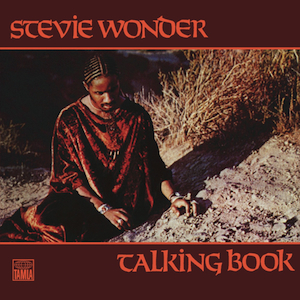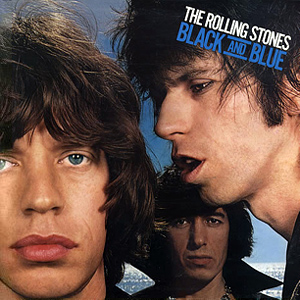
My Generation is the debut studio album by English rock band the Who, released on 3 December 1965 by Brunswick Records in the United Kingdom, and Festival Records in Australia. In the United States, it was released on 25 April 1966 by Decca Records as The Who Sings My Generation, with a different cover and a slightly altered track listing. Besides the members of the Who, being Roger Daltrey (vocals), Pete Townshend (guitar), John Entwistle (bass) and Keith Moon (drums), the album features contributions by session musician Nicky Hopkins (piano).

The Queen Is Dead is the third studio album by English rock band the Smiths. Released on 16 June 1986 in the United Kingdom by Rough Trade Records, and on 23 June 1986 in the US by Sire Records, it spent 22 weeks on the UK Albums Chart, peaking at number two. It also peaked at number 70 on the US Billboard Top Pop Albums chart, and was certified Gold by the RIAA in late 1990.

Exile on Main St. is the 10th British and 12th American studio album by the English rock band the Rolling Stones, released on 12 May 1972 by Rolling Stones Records. Recording began in 1969 in England during sessions for Sticky Fingers and continued in mid-1971 at a rented villa in the South of France named Nellcôte while the band lived abroad as tax exiles. A collage of various images, the album's artwork, according to frontman Mick Jagger, reflects the Rolling Stones as "runaway outlaws using the blues as its weapon against the world", showcasing "feeling of joyful isolation, grinning in the face of a scary and unknown future".

More Songs About Buildings and Food is the second studio album by American rock band Talking Heads, released on July 14, 1978, by Sire Records. It was the first of three albums produced by collaborator Brian Eno, and saw the band move toward a danceable style, crossing singer David Byrne's unusual delivery with new emphasis on the rhythm section composed of bassist Tina Weymouth and drummer Chris Frantz.

Parklife is the third studio album by the English rock band Blur, released on 25 April 1994 on Food Records. After disappointing sales for their previous album Modern Life Is Rubbish (1993), Parklife returned Blur to prominence in the UK, helped by its four hit singles: "Girls & Boys", "End of a Century", "Parklife" and "To the End".

I Never Loved a Man the Way I Love You is the tenth studio album by American singer Aretha Franklin released on March 10, 1967, by Atlantic Records. It was Franklin's first release under her contract with the label, following her departure from Columbia Records after nine unsuccessful Jazz standard albums, and marked a commercial breakthrough for her, becoming her first top 10 album in the United States, reaching number 2 on the Billboard 200. Two singles were released to promote the album: "Respect" and "I Never Loved a Man ". The former topped the Billboard Hot 100, while latter reached the top 10.

Ben Folds Five is an American alternative rock trio formed in 1993 in Chapel Hill, North Carolina. The group comprises Ben Folds, Robert Sledge and Darren Jessee. The group achieved success in the alternative, indie and pop music scenes. Their single "Brick" from the second album, Whatever and Ever Amen (1997), gained airplay on many mainstream radio stations.

Another Green World is the third studio album by English musician Brian Eno, released by Island Records in November 1975. Produced by Eno and Rhett Davies, it features contributions from a small core of musicians, including Robert Fripp (guitar), Phil Collins (drums), Percy Jones, and Rod Melvin (piano). John Cale plays viola on two tracks.

Whatever and Ever Amen is the second album by Ben Folds Five, released in 1997. Three singles were released from the album, including the lead single, "Battle of Who Could Care Less", which received significant airplay on alternative radio and on MTV, and peaked at #26 on the UK Singles Chart and #22 on the Billboard Modern Rock Tracks chart, and the band's biggest hit, "Brick", which was a top-40 song in numerous countries.

Dirty Mind is the third studio album by American singer, songwriter, and multi-instrumentalist Prince. It was released on October 8, 1980, by Warner Bros. Records and produced entirely by Prince at his home studio in Minneapolis, Minnesota earlier that year from May to June. Dirty Mind has been considered by critics to be his most creative and boldest album, setting the standard for his artistic direction in the following years.

13 is the sixth studio album by English alternative rock band Blur, released on 15 March 1999. Continuing the stylistic shift away from the Britpop sound of the band's early career, 13 explores experimental, psychedelic and electronic music.

Talking Book is the fifteenth studio album by American singer, songwriter, and musician Stevie Wonder, released on October 27, 1972, by Tamla, a subsidiary of Motown Records. This album and Music of My Mind, released earlier the same year, are generally considered to mark the start of Wonder's "classic period". The sound of the album is sharply defined by Wonder's use of keyboards and synthesizers.

Elastica is the debut studio album by English alternative rock band Elastica. It was released on 14 March, 1995 through Deceptive Records in the UK and DCG/Geffen Records internationally. The album was nominated for the Mercury Music Prize. This is the only album to feature the original line-up, and guitarist Donna Matthews.

Black and Blue is the 13th British and 15th American studio album by the English rock band the Rolling Stones, released on 23 April 1976 by Rolling Stones Records.

Fun House is the second studio album by American rock band the Stooges. It was released on July 7, 1970 by Elektra Records. Though initially commercially unsuccessful, Fun House developed a strong cult following. Like its predecessor and its successor, it is generally considered integral in the development of punk rock.

Here Come the Warm Jets is the debut solo album by British musician Brian Eno, released on Island Records in January 1974. It was recorded and produced by Eno following his departure from Roxy Music, and blends glam and pop stylings with avant-garde approaches. The album features numerous guests, including several of Eno's former Roxy Music bandmates along with members of Hawkwind, Matching Mole, Pink Fairies, Sharks, Sweetfeed, and King Crimson. Eno devised unusual methods and instructions to coax unexpected results from the various musicians.

For Your Pleasure is the second album by English rock band Roxy Music, released by Island Records in 1973. It was their last to feature synthesiser and sound specialist Brian Eno.

Oracular Spectacular is the debut studio album by the American band MGMT, released on October 2, 2007, by RED Ink and physically on January 22, 2008, by Columbia. It was produced by Dave Fridmann and is the band's first release of new content, being recorded from March to April 2007. Promotion for the album started as early as June 2007, when the song "Weekend Wars" was given away in summer issues of free monthly magazine Nöjesguiden in Stockholm, Sweden. Matching CDs could be picked up for free in all stores in three different shopping malls around Stockholm from June 26 to July 31. The album was also promoted with three singles: "Time to Pretend", "Electric Feel" and "Kids". Both "Time to Pretend" and "Kids" were re-recorded for the album; they were originally included on the band's previous release Time to Pretend (2005), with the opening track serving as a "mission statement" and the theme continuing through the album's subsequent tracks.

Transference is the seventh studio album by the American indie rock band Spoon. It was released on January 18, 2010 in Europe and on January 19 in North America. In Australia, it was released on January 15 through Spunk Records.

The Voyager is the second studio album and third overall by American singer-songwriter Jenny Lewis. The album was released on July 29, 2014, by Warner Bros. Records. The album was primarily produced by Ryan Adams at his studio, PAX AM.




















